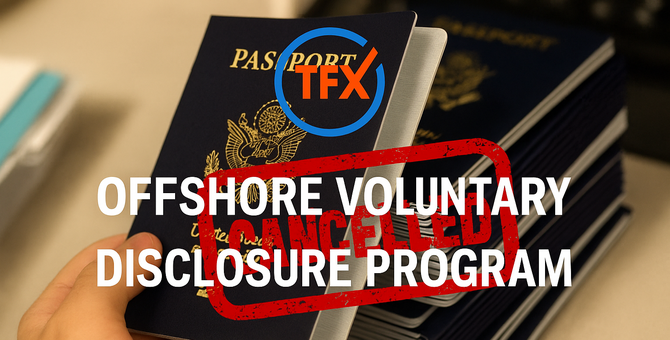Taxes in Austria: tax guide for Americans

If you're an American moving to or living in Austria, you're in a great place! Austria is a thriving international hub, with one in four residents being a foreigner.
Living and working here means you're likely subject to Austrian income tax and must file a local tax return. However, you also need to file a US tax return and report your worldwide income.
Managing both tax systems can be complex, but this article will help you navigate your taxes in Austria and in the US with ease.
Overview of the taxation in Austria
| Primary tax form for residents | Austrian individual income tax return (E1 Einkommensteuererklärung) |
| Tax year | January 1 – December 31 |
| Tax due date | April 30 for paper filings; June 30 for e-filings; extensions possible with a tax advisor |
| Criteria for tax residency | Reside in Austria or spend more than 183 days a year in Austria |
| US tax filing requirements | Must file Form 1040 and report worldwide income |
| Eligibility for FEIE | Qualify under the physical presence or bona fide residence test |
| Methods of double tax relief | Through the tax treaty between the US and Austria and foreign tax credits |
| Tax residency for dual citizens | Subject to both US and Austrian tax, but the treaty prevents double taxation |
| Estate and inheritance tax | Austria does not have inheritance tax |
| Overview of local tax rates | Progressive rates up to 55% depending on income |
Tax residence in Austria: Who has to pay?
In Austria, both residents and non-residents must file income tax returns. Tax residency is determined by having a permanent home or staying over 183 days in the country.Residents face unlimited tax liability and are taxed on their worldwide income, while non-residents have limited liability and are taxed only on income sourced from Austria.
Austria resident qualifications
- Permanent residence: Living in Austria regularly shows you intend to stay permanently.
- Length of stay: Staying over 183 days in a tax year (even if non-continuous) qualifies as residency.
- Residency status: You’re already a resident or have applied for residency.
Non-resident qualifications in Austria
Non-residents of Austria are taxed only on income sourced from Austria, such as income from activities or assets located in the country.
To qualify as a non-resident, you must spend fewer than 183 days in Austria during a calendar year and not have a permanent home there. Non-residents only need to file a tax return on Austrian-sourced income.
Austrian income tax rates 2025
Austria has a progressive tax system with tax rates ranging from 0% to 55%, depending on income.
Salaried employees and pensioners pay wage tax (Lohnsteuer), while self-employed individuals pay income tax (Einkommensteuer). The tax brackets are the same for both, but the collection methods differ based on employment status.
Austria offers many tax deductions, including for single earners (€601), single parents (€601 + €212 for the second child), pensioners (€1,002–€1,476), transport (€487), and various professional and personal expenses.
The tax brackets are as follows (2025):
| Taxable income in 2024 (EUR) | Taxable income in 2025 (EUR) | Tax rate (%) |
|---|---|---|
| up to 12,816 | up to 13,308 | 0 |
| 12,816-20,818 | 13,308-21,617 | 20 |
| 20,818-34,513 | 21,617-35,836 | 30 |
| 34,513-66,612 | 35,836-69,166 | 40 |
| 66,612-99,266 | 69,166-103,072 | 48 |
| 99,266-1,000,000 | 103,072-1,000,000 | 50 |
| over 1,000,000 | 1,000,000 and above | 55 |
Source: Unternehmensserviceportal (USP).
Other taxes in Austria
Self-employment tax
In Austria, self-employed individuals fall into three categories:
- freelancers (Freiberufler)
- new self-employed (Neue Selbständige)
- sole proprietors (Einzelunternehmer)
Professionals in liberal occupations (Freiberufler), such as doctors or writers, are taxed progressively and must file annual returns and quarterly prepayments. They also pay social security, including pension and health insurance. New self-employed individuals follow similar rules but only pay social security if their income exceeds €6,613.20 in 2025. Sole proprietors may need a business license and must pay VAT if their earnings exceed €35,000.
If you're self-employed with US tax obligations and earn more than $400, you won't owe US income tax if your earnings are covered by the Foreign Earned Income Exclusion (FEIE). However, you're still liable for self-employment tax, which includes Social Security and Medicare taxes. The FEIE and other credits or deductions do not reduce this tax obligation.
Capital gains tax
Capital gains tax (CGT) in Austria is 27.5% for most assets.
For real estate, properties acquired before April 1, 2002 may be taxed at 3.5% or 15% if reclassified as buildable land. For properties acquired after April 1, 2002, the rate is 25%. The exemption for properties owned over ten years was abolished for real estate acquired after April 1, 2012.
Value-added tax (VAT)
The standard VAT tax in Austria is 20%. Reduced rates of 10% and 13% apply to certain goods and services, including food, public transport, saunas or thermal treatments. Additionally, a specific regional VAT tax rate may apply.
Businesses can recover VAT on business-related expenses.
Property tax in Austria
Property tax is based on the "Einheitswert" (assessed value) of the property and is levied by local authorities. The standard rate is 0.2%, with municipalities applying a factor up to 500%, increasing the effective tax burden.
Austria crypto tax
In Austria, cryptocurrency holdings are taxed at a special rate of 27.5% as income from capital assets. This applies to both current income, such as mining or lending, and realized gains from sales or conversions.
Stablecoins and publicly offered cryptocurrencies are included, while NFTs and asset tokens are taxed under general tax rules.
For more information on the tax treatment of cryptocurrencies, click here.
Corporate tax
Corporations in Austria are subject to corporate income tax (Körperschaftsteuer) on their profits. The current corporate income tax rate is a flat 23%.
For companies with share capital subject to unlimited tax liability, there is a minimum tax of 5% of one quarter of the statutory minimum level of the nominal or share capital for each full calendar quarter.
Social security
In Austria, social security contributions are shared between employers and employees, covering health, pension, accident, and unemployment insurance.
As of 2025, the maximum contribution base is €6,450 per month. Employers contribute approximately 21% of an employee's gross salary, while employees contribute about 18%,resulting in a total contribution of approximately 39%.
For Americans living in Austria, the US-Austria totalization agreement helps prevent double social security taxation. Get expert advice on how the totalization agreement can work to your advantage.
Drowning in tax details?
Talk to a tax professional
Austria wealth tax
Austria does not currently have a net wealth tax.
Austria inheritance tax
Austria abolished inheritance tax in 2008, so heirs don’t have to pay tax on inherited assets, no matter their value.
If you're an American or a resident alien who inherits assets in Austria, you’ll need to follow IRS reporting rules. Any income generated from those assets, like interest or dividends, will be subject to US income tax. Keep in mind that foreign inheritance reporting rules can vary by state.
Gift tax
Austria doesn't have a gift tax, so you’re free to make gifts without worrying about any tax liability, no matter how much the gift is worth. However, Americans may still need to report gifts over a certain value to the IRS.
Luxury and excise taxes
Austria levies excise taxes on certain luxury and specific consumer goods, such as tobacco, alcoholic beverages, and certain energy products like petroleum.
Tax treaty between the US and Austria
The United States and Austria have established a tax treaty to prevent double taxation and provide clarity on tax obligations for expats. The tax treaty determines which country has the primary right to tax various types of income, such as salaries, dividends, and capital gains.
The US-Austria tax treaty also includes provisions for tax relief, such as foreign tax credits and exemptions, helping you avoid being taxed on the same income in both countries.
Totalization Agreement between the US and Austria
To address the issue of dual social security taxation, the US and Austria also have a Totalization Agreement in place. This agreement ensures that workers do not have to pay social security taxes to both countries on the same earnings, preventing financial burdens.
It also helps determine which country's social security system applies based on factors such as the length of employment and residency.
Filing a tax return in Austria
When to file a tax return
In Austria, the tax year follows the calendar year. Tax returns are generally due by April 30 of the following year for paper filings. For electronic submissions, the deadline is extended to June 30.
Tax returns prepared by an accountant or tax advisor may have a longer filing period.
To file your taxes in Austria you’ll need to use the FinanzOnline system (find information in English about how to sign up and use the FinanzOnline system).
Americans abroad must file their US tax return with the Internal Revenue Service (IRS) in addition to their income tax return in Austria, if applicable.
Penalties for late or incorrect filing
In Austria, failing to file a tax return on time can lead to penalties. Late filings typically result in a standard assessment, which may not account for all available deductions and exemptions.
Additionally, if an incorrect or incomplete return is filed intentionally, it can be considered tax evasion. In such cases, severe penalties apply, including fines of up to 10% of the tax due, or even higher amounts in cases of significant tax evasion.
The Austrian tax authorities may also charge late payment interest on overdue amounts.
Most popular tax forms for US expats
US expats in Austria may need to file different tax forms, including:
- Form 1040 – The standard income tax return required for all US citizens, regardless of location. The filing deadline is April 15, but expats receive an automatic extension to June 16 (in 2025).
- Form 2555 (Foreign Earned Income Exclusion – FEIE) – Allows expats to exclude up to $126,500 (2024 limit, adjusted annually) of foreign income from US taxes.
- Form 1116 (Foreign Tax Credit) – If you pay income tax in Austria, you can use Form 1116 to claim a credit on your US tax return.
- FBAR (FinCEN Form 114) – Required if the combined value of foreign bank accounts exceeds $10,000 on any day during the tax year.
- Form 8938 (FATCA report) – Required if foreign assets exceed $200,000 on the last day of the tax year or $300,000 at any point ($400,000 and $600,000 for married taxpayers filing jointly).
Austria tax forms for US expats
- E1 (Einkommensteuererklärung): The Austrian income tax return form for individuals. This form is used to report income earned in Austria, including employment income, self-employment income, rental income, and other types of taxable income.
- U1 (Umsatzsteuererklärung): This form is used for VAT reporting by businesses, including self-employed expats. It's a monthly or quarterly declaration of VAT collected and paid.
- L1 (Erklärung zur ArbeitnehmerInnenveranlagung): For employees, this form is used to claim various tax deductions and credits, such as work-related expenses, special expenses, and family allowances.
- K1 (Körperschaftsteuererklärung): This form is used for corporate income tax reporting.
For more information about filing taxes in Austria, you can contact the Austria Tax Office or book an appointment.
Are you a US expat in Austria? Let TFX handle your taxes
You can trust us – we've been preparing tax returns for Americans in Austria for over 20 years. Whether you need help with FEIE, foreign tax credits, or dual tax filing, our experts are here to guide you through the process. Let Taxes for Expats take the stress out of managing your US tax obligations.
Get expert US expat tax support – wherever you are
Get started


